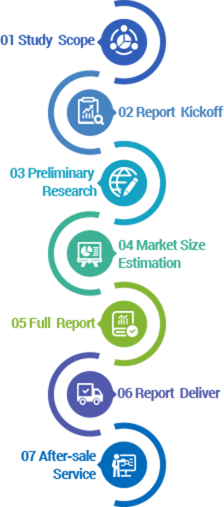
Chapter-Asia Pacific Industrial Fire Barrier Products Market 2023 by Country, Type and Application, Forecast to 2029
Page: 30
Published Date: 10 May 2023
Category: Chemical & Material
PDF Download
Get FREE Sample
Customize Request
Table of Contents
Research Methodology
Product Tags

Table of Contents
1 Market Size Segment by Type
1.1 Asia Pacific Industrial Fire Barrier Products Consumption Value and Market Share by Type (2018-2023)
1.2 Asia Pacific Industrial Fire Barrier Products Market Forecast by Type (2024-2029)2 Market Size Segment by Application
2.1 Asia Pacific Industrial Fire Barrier Products Consumption Value Market Share by Application (2018-2023)
2.2 Asia Pacific Industrial Fire Barrier Products Market Forecast by Application (2024-2029)3 Asia Pacific Segment Country Level
3.1 China
3.1.1 China Industrial Fire Barrier Products Consumption Value by Type (2018-2029)
3.1.2 China Industrial Fire Barrier Products Market Size by Application (2018-2029)
3.2 Japan
3.2.1 Japan Industrial Fire Barrier Products Consumption Value by Type (2018-2029)
3.2.2 Japan Industrial Fire Barrier Products Consumption Value by Application (2018-2029)
3.3 South Korea
3.3.1 South Korea Industrial Fire Barrier Products Consumption Value by Type (2018-2029)
3.3.2 South Korea Industrial Fire Barrier Products Consumption Value by Application (2018-2029)
3.4 India
3.4.1 India Industrial Fire Barrier Products Consumption Value by Type (2018-2029)
3.4.2 India Industrial Fire Barrier Products Consumption Value by Application (2018-2029)
3.5 Australia and New Zealand
3.5.1 Australia and New Zealand Industrial Fire Barrier Products Consumption Value by Type (2018-2029)
3.5.2 Australia and New Zealand Industrial Fire Barrier Products Consumption Value by Application (2018-2029)
3.6 Indonesia
3.6.1 Indonesia Industrial Fire Barrier Products Consumption Value by Type (2018-2029)
3.6.2 Indonesia Industrial Fire Barrier Products Market Size by Application (2018-2029)
3.7 Thailand
3.7.1 Thailand Industrial Fire Barrier Products Consumption Value by Type (2018-2029)
3.7.2 Thailand Industrial Fire Barrier Products Consumption Value by Application (2018-2029)
3.8 Malaysia
3.8.1 Malaysia Industrial Fire Barrier Products Consumption Value by Type (2018-2029)
3.8.2 Malaysia Industrial Fire Barrier Products Consumption Value by Application (2018-2029)
3.9 Singapore
3.9.1 Singapore Industrial Fire Barrier Products Consumption Value by Type (2018-2029)
3.9.2 Singapore Industrial Fire Barrier Products Consumption Value by Application (2018-2029)
3.10 Philippines
3.10.1 Philippines Industrial Fire Barrier Products Consumption Value by Type (2018-2029)
3.10.2 Philippines Industrial Fire Barrier Products Consumption Value by Application (2018-2029)4 Appendix
4.1 Methodology
4.2 Research Process and Data Source

Research Methodology
Client Requirements
Review and analyze client requirements
Discussion of all the project requirements and queries
Flexibility Check
Project Feasibility Analysis
Finalizing tentative research programme
Structuring project proposal with scope, timeline, and costs
Analyzing Market Dynamics
Determination of key drivers, restraints, challenge, and opportunity
Identifies market needs and trends
Market Size Estimation & Forecast
Estimation of historical data based on secondary and primary data
Anticipating market recast by assigning weightage to market forces (drivers, restraints, opportunities)
Freezing historical and forecast market size estimations based on evolution, trends, outlook, and strategies
Consideration of geography, region-specific product/service demand for region segments
Consideration of product utilization rates, product demand outlook for segments by application or end-user.

Data Source
Secondary Source
Data collections from annual reports, presentations,associations, journals, analyst reports,
paid database, press releases, blogs, newsletters,and GIR repositories.
Primary Source
Research discussion with manufacturers, distributors, suppliers, end user, industry experts
to verify insights.
Validation
and
triangulation of
secondary and primary source.
Collection of data
Cumulating and collating the essential qualitative and quantitative data
Generation of report in client requested format by research analysts
Reviews by expert analysts
Final quality check
Clarifying queries
Receiving feedback
Ensuring satisfaction

01 Identification of data
This step involves identification of several primary and secondary data research sources, including Global Info Research's internal data sources. The primary sources consist of in-depth discussions and interviews with policy makers, industry experts, and data evaluators, whereas secondary sources include a thorough study of market journals, press releases, annual reports, and government and non-government agencies websites.

02 Evaluation of Market Dynamic
This phase includes a detailed evaluation of several factors that are likely to affect the market dynamics. It involves a comprehensive assessment of major market pain points, drivers, and trends. It also comprises a detailed study of research plans and methodology.

03 Collection of Data
This process consists of gathering data, accessing proprietary databases, and reaching out to key industry participants that operate in the market across the value chain. It also involves studying several patterns in the historical data and comparing it with the current scenario.

04 Collaboration of Data
This stage involves the validation of data and arrival at actual statistics, and evolution of the market over the years. It entails the study and analyzes various segments and verticals of the market. An impact analysis is also performed to observe which factors will affect the market in the next few years.

05 Verification and Analysis
This is the final stage, which involves both quantity and quality checks. Although the process of data verification is an integral part of the research process, all data points and statistics and figures are re-checked to uphold their authenticity and validity.

Product Tags
Purchase Options
Add To Cart
Buy Now






Popular Product Keywords
- We Provide Professional, Accurate Market Analysis to Help You Stay Ahead of Your Competition.Speak to our analyst >>
Our Clients
What We Can Provide?
With better results and higher quality products,Our professional reports can achieve four things:

Insight into the industry market information

Analyze market development needs

Prospects for future development

Develop industry investment strategy
- Digging deeper into global industry information and providing market strategies.Contact Us >>